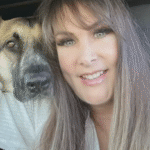Dental Care for Your Companion Animal
One of the most frequently overlooked aspects of companion animal health is dental care. Many people notice their animal’s bad breath, but few will open their dog’s or cat’s mouth to determine the cause of the problem. The source of the odor is almost always a build up of tartar on the molars: teeth that are not readily visible. Opening the animal’s mouth and pulling the corner back will reveal the offending tartar.
We brush our teeth several times a day and still need the tartar scraped off by a dentist at least once a year. The tartar does not necessarily develop from a build up of food but is usually a result of the chemistry of our saliva. Our teeth are constantly bathed in saliva, and tartar is usually worse where the salivary ducts empty into the mouth. The same is true for animals.
Feeding your dog or cat a hard, crunchy pet food is the best way to control tartar. Do not moisten it or mix it with canned food. Frequent brushing – at least three times a week – with enzymatic pet toothpaste and a soft toothbrush made especially for dogs and cats will also help control the problem.
When brushing your dog’s or cat’s teeth, it is not necessary to hold the mouth open. Most tartar forms between the outside of the teeth and the gums. You can hold your animal’s muzzle and insert the toothbrush or finger brush under the lip. You merely reach back to brush the molars. Most tartar damage affects the upper teeth, especially the molars, first. By cleaning these teeth, you will control much of the problem.
Many products that help control tartar are available through veterinarians and pet supply stores. These products include food, treats and toys that work like dental floss. These products, however, are not a replacement for brushing.
Canned and moist pet foods tend to accentuate tartar build up because they lack the abrasive action that results from chewing hard food. A diet of soft food, including table scraps, often results in more tartar, inflamed and receding gums, and loosening teeth that will eventually fall out.
Chronic dental infection can cause serious health problems when bacteria around affected teeth enters the bloodstream. This bacteria may enter heart valves and cause valve damage and heart disease. It is common to hear a heart murmur in a companion animal with bad teeth. But it is not necessarily too late. Prompt attention can arrest these health troubles.
Check you companion animal’s teeth today for bad breath, tartar, red gums, and movable teeth. If you find a problem, make an appointment with your veterinarian for an evaluation. Brushing or changing the diet may be all that is needed. The average dog or cat needs professional cleaning by a veterinarian about every three years. General anesthesia is required to do a thorough job and poses a minimal risk for healthy animals.
Rabbits, guinea pigs, hamsters, rats and mice should have chunks of wood in their cages for chewing. These animals have a natural need to chew on materials which help keep their teeth sharp and clean. If a piece of pine is available, they will probably not destroy the plastic or other wood structures in their cages. A cut off piece of a two-by-four will work well.
Horses need periodic dental care, too. Sharp edges can develop on the sides of the grinding teeth that can cut into a horse’s tongue or cheek. “Floating” the teeth – the filing of these sharp edges – allows more comfortable chewing. Contact your veterinarian for further information.




